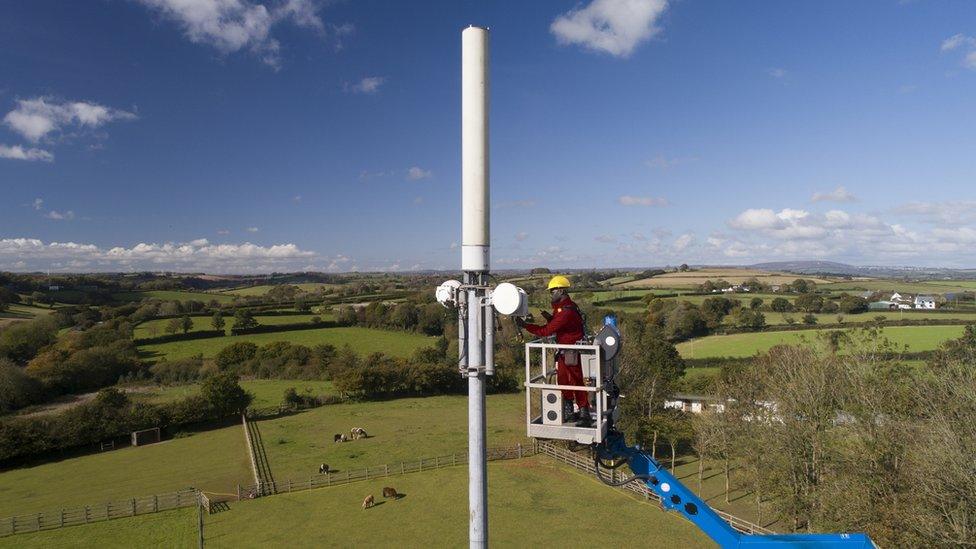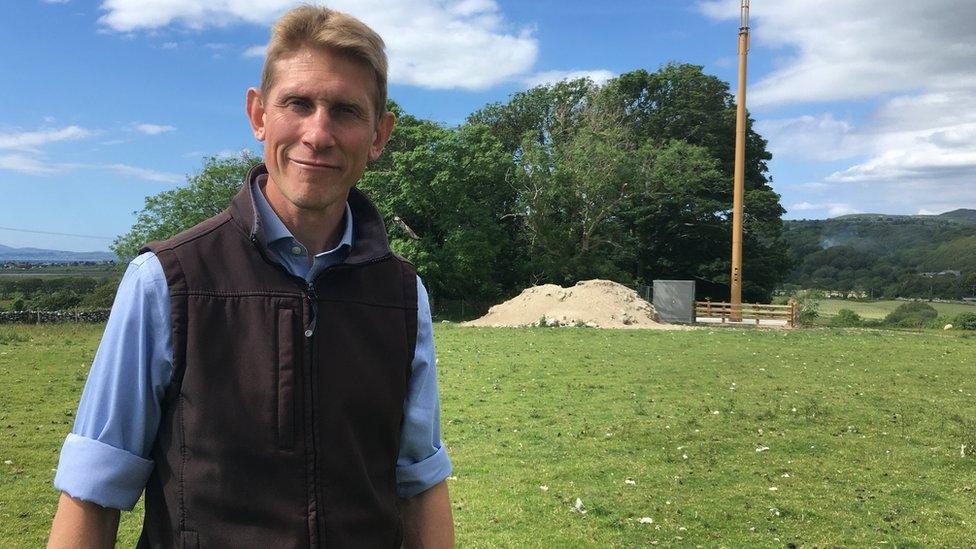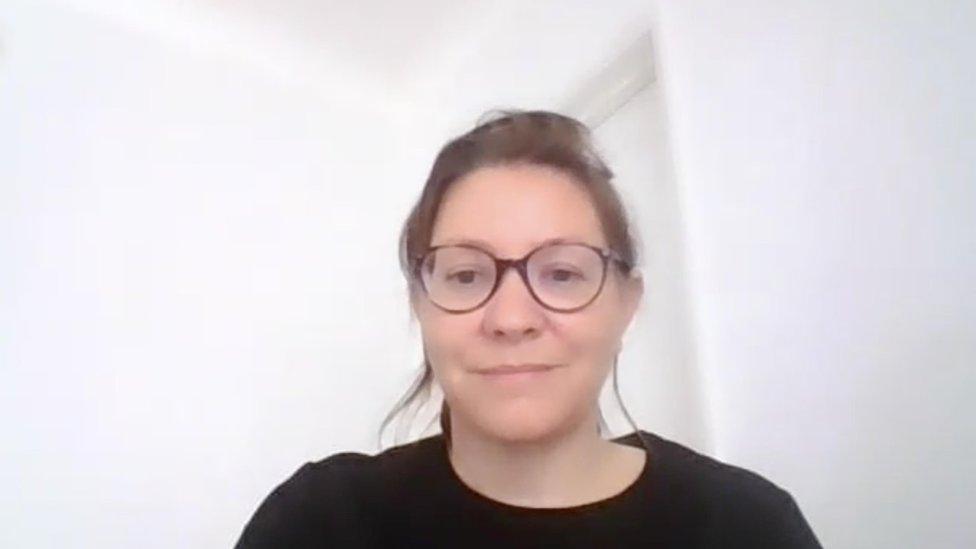Phone masts: Landowners call for rethink on rents
- Published

One farmer says his phone mast rent income dropped from £5,500 to £3.50 per year
Rent reductions will make landowners reluctant to let phone masts be put on their property, an MP has warned.
Plaid Cymru's Liz Saville Roberts is calling on the UK government to ensure landowners get a fair return to protect mobile connectivity.
The 2017 Electronic Communications Code (ECC) allowed telecoms companies to vastly reduce many rents they paid.
The UK government said it would legislate to encourage "collaborative negotiations".
Ed Bailey, a farmer and chartered surveyor from Llanbedr, near Harlech in Gwynedd, originally agreed a rent of £5,500 a year in 2017 to have a telecoms mast on his land.
But after telecoms companies were given more powers in a review of key legislation, the rent offer was reduced to £3.50 a year.

Ed Bailey - a farmer and chartered surveyor from Llanbedr near Harlech - has been affected by the rent reduction
"We've been taken advantage of as a family, and obviously it puts doubts into wanting to work with a company again," said Mr Bailey.
"I think it's created a situation which has actually slowed down digital connectivity."
The changes to the ECC, the legislation which governs the relationship between mast operators and landowners, were meant to speed up the roll-out of new masts and improve connectivity across the UK, especially the 5G network.
But campaign group Protect and Connect say the changes to the code in 2017 have had the opposite effect.
The group has called for further changes to the ECC, especially to the method for calculating rent introduced by the 2017 revision which is based on the minimal value of the land.
In rural areas this means agricultural land prices, which does not take into account the value of the telecoms equipment that will be located on the land.
Campaigners say the "power balance has swung too far" in favour of the telecoms companies.

Chair of Protect and Connect Anna Turley is campaigning for a better deal for landowners
Protect and Connect chairwoman Anna Turley said: "These changes are having a significant effect on thousands of people who have committed to support better connectivity in this country by having phone masts on their land.
"The power balance has swung too far and many ordinary people are finding themselves on the end of aggressive behaviour by these companies as well as losing out financially.
"Many are now asking if it's worth hosting the sites at all or are getting bogged down in court.
"The worry is that this imbalance of power through the code is hampering better access at the time we need it the most."
'Left behind'
Ms Turley added that the revised code means landowners' only option is to take the companies to court.
"The power is completely in the hands of these companies - who can afford to take on these huge giants with their big legal budgets?" she asked.
Liz Saville Roberts, MP for Dwyfor Meirionydd, warned the UK government will struggle to meet network improvement targets.
"In a rural area like Dwyfor Meirionydd this really rings alarm bells as to whether we're going to be able to continue to roll out the improvement with mobile connectivity which we so desperately need," she said.
"If we don't have that in our rural areas, we will be left behind."
The UK government's Department for Digital, Culture, Media and Sport (DCMS) has been consulting on the impact of the revised ECC and is considering further changes.
A DCMS spokesperson said: "Our priority is levelling up the country with better mobile coverage and to do so quickly we need fair prices to be agreed for the right to access land and install new equipment.
"We are aware of concerns raised about the code and have confirmed we will legislate to encourage fairer, faster and more collaborative negotiations with network operators."
- Published27 January 2021

- Published20 April 2021

- Published27 January 2021
